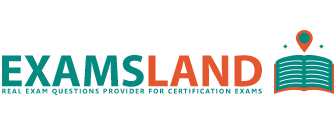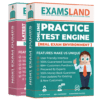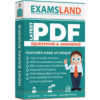📝 Types Of Cisco 700-760 Questions
Both Cisco 700-760 dumps PDF and the online testing engine contain all the real questions, including multiple-choice questions. | ✓ | ✓ |
📅 3 Months Free Cisco 700-760 Exam Dumps Update
We provide you with three months of free Cisco 700-760 questions dumps updates at no additional cost. | ✓ | ✓ |
💰 100% Money Back Guarantee & Passing Guarantee
We provide Cisco 700-760 test question dumps with a 100% pass guarantee and a money-back policy. | ✓ | ✓ |
🔒 Fully SSL Secure System Of Purchase
Purchase Cisco 700-760 practice questions through a fully SSL-secured system. Download 700-760 dumps from your secure website account. | ✓ | ✓ |
🔏 We Respect Your Privacy
We fully respect our customers' privacy and never share any personal information with third parties. | ✓ | ✓ |
🏆 100% Real 700-760 Exam Environment
Experience the 100% real Cisco 700-760 exam environment with our online Cisco 700-760 test engine. | ✕ | ✓ |
⚙️ 2 Modes Of Cisco 700-760 Practice Exam In Online Testing Engine
Unlimited real Cisco 700-760 exam testing mode and practice mode. | ✕ | ✓ |
📊 Cisco 700-760 Exam Score Report
Our Cisco 700-760 practice questions test engine will provide a secure report at the end of the exam, allowing you to identify your weak points. | ✕ | ✓ |
🎯 Question Selection In 700-760 Online Test Engine
Our Cisco 700-760 online test engine offers the option to select between randomized and non-randomized question sets. | ✕ | ✓ |
💬 Customer Feedback
We value your input and encourage customer feedback to help us improve our Cisco 700-760 online practice test engine and PDF offerings. | ✕ | ✓ |


